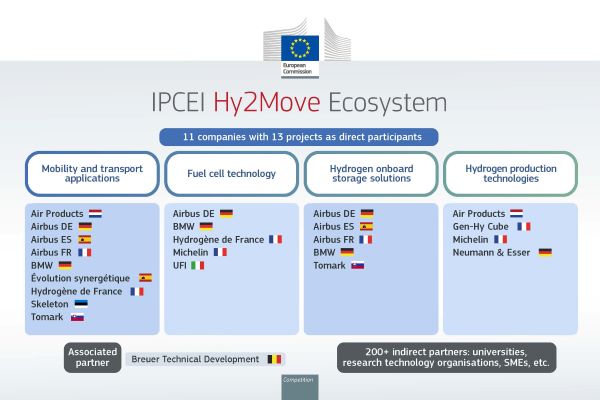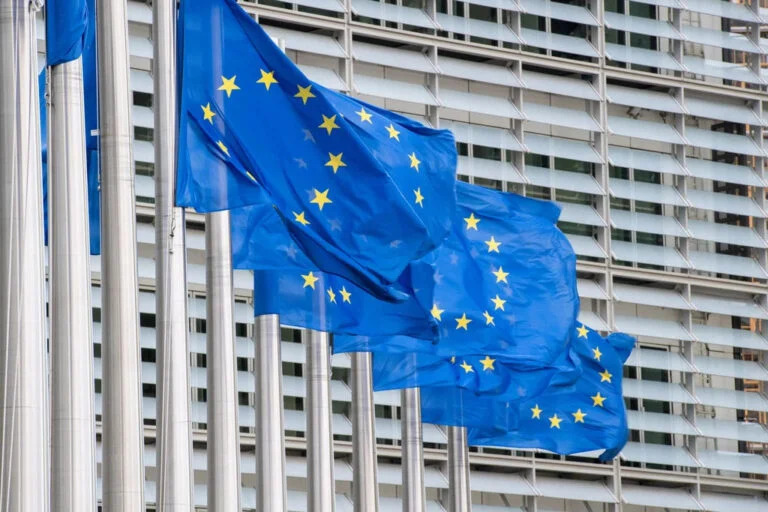The European Commission has approved, under EU State aid rules, a fourth Important Project of Common European Interest (IPCEI) to support research, innovation and the first industrial deployment in the hydrogen value chain. Seven member states will provide up to €1.4 billion in public funding, which is expected to unlock an additional €3.3 billion in private investments.
The project, called IPCEI Hy2Move, was jointly prepared and notified by Estonia, France, Germany, Italy, Netherlands, Slovakia and Spain, and according to the European Commission, as part of this IPCEI, 11 companies with activities in one or more of these member states, including small and medium-sized enterprises (SMEs) and start-ups, will undertake 13 innovative projects.
The participating companies will cooperate with each other as well as with the associated partner Breuer Technical Development, a Belgian SME, and with over 200 indirect partners, such as universities, research organizations and SMEs across Europe.
The Commission revealed that IPCEI Hy2Move will cover a wide part of the hydrogen technology value chain, by supporting the development of a set of technological innovations, including:
- the development of mobility and transport applications to integrate hydrogen technologies in transport means (road, maritime and aviation),
- the development of high-performance fuel cell technologies, which use hydrogen to generate electricity with sufficient power to move ships and locomotives,
- the development of next-generation onboard storage solutions for hydrogen, and
- the development of technologies to produce hydrogen for mobility and transport applications, in particular for supplying hydrogen refuelling stations on-site with pressurized, 99.99% pure fuel-cell-grade hydrogen.

The project contributes to the EU’s target of 90% reduction of emissions from the mobility and transport sectors, the European Commission said, adding that by fostering the use of hydrogen as a fuel, it will also help achieve the objectives of the European Green Deal, the EU Hydrogen Strategy and the Sustainable and Smart Mobility Strategy.
Margrethe Vestager, Executive Vice-President in charge of competition policy, commented: “Hydrogen can support us to move around and transport goods with zero emissions. But investing into hydrogen powered mobility and transport technologies can be risky for one Member State or one company alone. This is where State aid rules for IPCEI have a role to play. The IPCEI Hy2Move approved today is an example of truly ambitious European cooperation for a key common objective. It also shows how competition policy works hand in hand with breakthrough innovation.”
IPCEI Hy2Move complements the first three IPCEIs on the hydrogen value chain: Hy2Tech, Hy2Use and Hy2Infra. The Commission approved Hy2Tech, which focuses on the development of hydrogen technologies for end users, and Hy2Use, which focuses on hydrogen applications in the industrial sector, back in 2022. Hy2Infra, which concerns infrastructure investments, was approved in February 2024.
The completion of the overall IPCEI is expected by 2031, with timelines varying in function of the individual projects and the companies involved. Around 3,600 direct jobs are expected to be created, and many more indirect ones.

